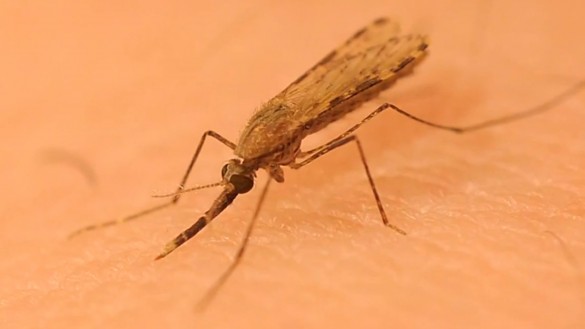
As part of its routine surveillance of mosquito pools throughout Nashville, the Metropolitan Nashville Health Department recently identified mosquitoes near Vanderbilt (at the corner of Blakemore and 21st Avenues) that tested positive for West Nile virus. The health department has surveyed mosquito pools since 2000 and first detected West Nile virus in Nashville in 2002, the same year that human cases of West Nile virus were first detected in Tennessee.
While the appearance of mosquitoes with West Nile virus near campus may cause some concern, the reassuring news is that the detection of West Nile virus in Tennessee mosquitoes is currently at a 10-year low and the risk for human West Nile virus infection is therefore very low. Only 200 mosquito pools in Nashville have had West Nile virus-positive mosquitoes this year, compared with a typical number of 500-900 in the past several years. There have been no cases of West Nile virus infection in Nashville this year and only three cases in the entire state of Tennessee.
Most people (about 80 percent) who are infected with West Nile virus by the bite of an infected mosquito will have no symptoms and will not know they have been infected. Approximately 20 percent of the people who are infected may experience a range of flu-like symptoms, which may include fever, headache, weakness, stiff neck, nausea, vomiting, muscle aches and pains, rash and, in some cases, diarrhea and sore throat. Less than 1 percent of people that are infected with West Nile virus by the bite of an infected mosquito will develop severe illness. Persons over 50 years of age are at highest risk of developing the most severe form of the disease.
West Nile virus is one of several mosquito-borne viruses in the United States that can infect people, so it is important to take precautions during any mosquito and tick bite season, which ends with the first hard frost:
- The health department recommends taking the following steps to protect against being bitten by mosquitoes, including:
- Limit time outdoors at dusk and nighttime hours when mosquitoes are present.
- If you must be outdoors, wear a mosquito repellent that is approved for use by the CDC. Those include products that contain DEET, Picaridin, and oil of lemon eucalyptus.
- Wear shoes, socks, long-sleeve shirts and pants when outdoors during dusk to dawn when mosquitoes are most prevalent. Clothing should be light-colored and made of tightly woven materials to keep mosquitoes away from the skin. Pant legs should be tucked into shoes or socks, and collars should be buttoned.
- Make sure your windows and doors have screens and are in good repair.
Health department officials recommend taking steps to reduce mosquito-breeding areas. This includes:
- Reduce or eliminate all standing water in your yard–especially in children’s toys, birdbaths, clogged gutters, tires, flower pots, trash cans and wheelbarrows.
- Aerate ornamental pools or stock them with Gambusia fish.
- Apply mosquito dunks in standing water areas on your property.
- Cut back overgrown vegetation (mosquito hiding areas).
Staff and faculty members who are ill should contact their health care provider or the Occupational Health Clinic at (615) 936-0955. Ill students should seek care at the Student Health Center by calling (615) 322-2427 for an appointment.
Anyone seeking more information about mosquito control in Davidson County may call (615) 340-5660. Information also is available at the health department’s website.